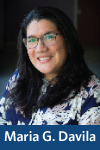When I started my research career back in 2004, I was working in the biggest trauma center in the Atlanta area, Grady Healthcare System. I had arrived in the country under a work visa to help with the Department of Orthopaedics’ clinical trials. I remember the nervousness of speaking to potential study participants because I was not only new to clinical research, having only done chart review projects in the past, I was also new in America and America’s history of research with minorities. I was pretty much oblivious to what had happened in the past. Sure, I knew about Tuskegee (as learned during my CITI training), but I did not think much about it after the online training.
I was successful in recruiting subjects despite my awkwardness, but many black patients turned me down after hearing the word “research” or “research coordinator”, without giving me the chance to utter another word. I at least had the good instinct to thank them and just leave it at that, and never insisted or tried to discuss why there were saying no without hearing my carefully prepared speech. Honestly, due to my lack of knowledge, the my efforts to reach these patients would not have been productive in any way. Every time I was back at the office and discussed this experience with others and they would nod and say “yes, some people do not like research”.
Now, after all these years of working as a research coordinator and IRB professional, and living in the United States for more than 15 years, I have learned that the concerns and reluctance that Native, Black, Latinx, Asian American, and Pacific Islander patients experience about being research participants is not limited to concerns originating from “Tuskegee”. It is a multifaceted issue that comes from years of oppression, years of not having adequate services, and a near constant fear of being discriminated against. Reaching minorities to participate in research is not an easy task, and one we still struggle with. It is not just a lack of trust that is a barrier; there are many additional practical ones. Lack of availability and transportation are also a big impediments, among others. That is why I was so excited to hear a lot of the presentations at PRIM&R’s 2019 Advancing Ethical Research Conference (AER19) shared not only the data but also the work that several people have done to build real trust in people to participate in research.
I had the chance to attend Panel I (“Diverse Representation in Clinical Trials—Why Does It Matter and How Do We Move Forward?”) and was excited to see the initiatives that all the panelists showed us. This insight was interesting to me as we know that we need to do better. Though I have not been working as a research coordinator since joining the IRB back in 2010, I know that, similar to the panelists of the presentation, a lot of work has been put forward to increase minority participation in research in our hospitals. Despite all these efforts we’ve already undertaken, the work of regaining the trust of our communities is not complete. From using ambassadors who can serve as a liaison between the community and research, to using telemedicine for research visits, there are many efforts that can be taken to reach equal representation in clinical trials. This is so important, to ensure not only we are doing quality studies but also that we help in diminishing the social injustices our communities still undergo today.
Maria G. Davila MD, CCRC, MA (Bioethics), is the Associate Director for Emory University IRB. She joined the IRB in August 2010. Maria is the team leader of the QA and Education team, which is in charge of auditing Emory IRB approve research studies and reviewing reportable events applications. Her team is responsible for providing federal regulations and P&P education to the Emory research community, IRB Staff, and IRB members. Under Maria’s leadership, the IRB Education and QA team have developed several guidance documents and worksheets and started educational, monthly webinars to provide up-to-date information to the Emory research community.
Before joining the IRB, she worked as a research associate for the Department of Orthopaedics for six years. During this time, Maria worked in a diverse range of studies, going from minimal risk studies up to Phase I research trials; helped with the development of quality assurance procedures for their research projects; and was the microsurgery instructor for residents and fellows. Maria has a foreign medical degree from Ecuador and a Master’s in Bioethics at Emory University.
The recording of the AER19 session “Diverse Representation in Clinical Trials—Why Does It Matter and How Do We Move Forward?” is free to view.


No comments! Be the first commenter?